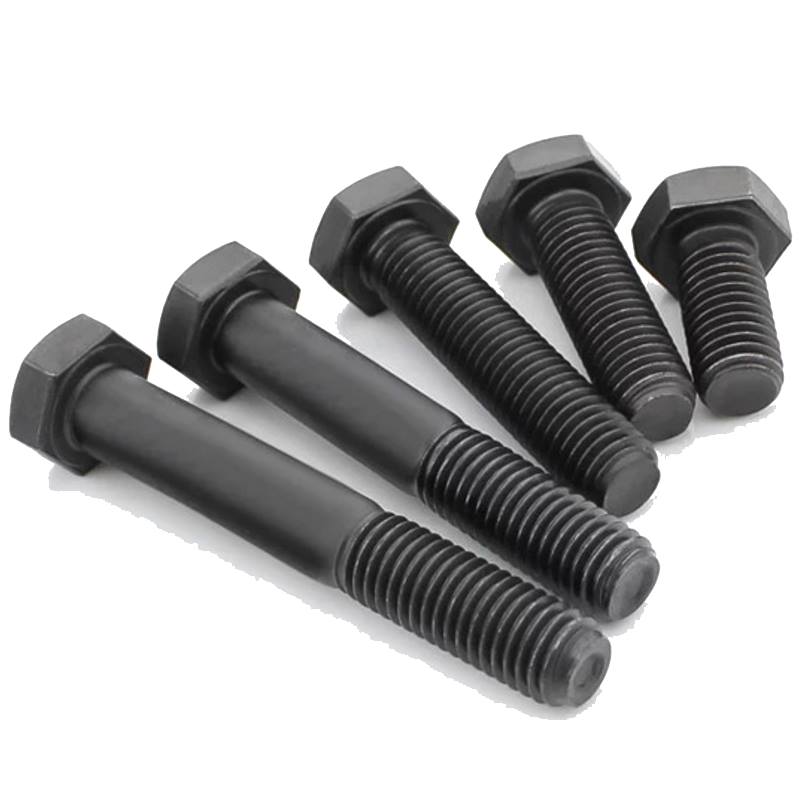DIN 2510 Standard for Stud Bolt Manufacturing and Specifications in Industrial Applications
Nov . 29, 2024 17:51 Back to list
DIN 2510 Standard for Stud Bolt Manufacturing and Specifications in Industrial Applications
Understanding DIN 2510 Stud Bolt Factories
In the realm of industrial manufacturing, fasteners are essential components that play a crucial role in ensuring the integrity and functionality of various structures and machinery. Among these, stud bolts hold particular significance, especially those adhering to the DIN 2510 standard. This article explores the importance of DIN 2510 stud bolt factories, their manufacturing processes, and the quality standards they uphold.
The Significance of Stud Bolts
Stud bolts are elongated fasteners that feature threads on both ends, allowing them to be secured within threaded holes or to hold two components together with nuts. They are pivotal in various applications, including construction, automotive, and aerospace industries. The DIN (Deutsches Institut für Normung) 2510 standard outlines specific requirements regarding dimensions, material strength, and mechanical properties of stud bolts, ensuring consistency and reliability across different applications.
DIN 2510 Standard Specifications
The DIN 2510 standard specifies the design, dimensions, and material properties of stud bolts. It typically outlines the following details
1. Dimensions The standard provides guidelines for the length, diameter, and thread specifications, ensuring compatibility with corresponding nuts and threaded components.
2. Material Requirements Stud bolts are usually made from high-strength materials such as carbon steel, alloy steel, and stainless steel. The standard dictates minimum yield strength and tensile strength values, which are critical for applications requiring high durability.
3. Surface Treatment To enhance resistance against corrosion and wear, DIN 2510 standard stud bolts may undergo surface treatments such as galvanizing or coating. These processes are essential for extending the lifespan of the fasteners, especially in harsh environmental conditions.
din 2510 stud bolt factories

Manufacturing Process in DIN 2510 Stud Bolt Factories
Stud bolt factories that comply with the DIN 2510 standard implement rigorous manufacturing processes to ensure high-quality products. The production cycle typically involves the following key steps
1. Material Selection Factories begin by sourcing high-grade raw materials, such as alloyed or stainless steel, that meet the specifications outlined in the DIN standard.
2. Forging and Machining The selected materials undergo forging, which shapes them into the preliminary form of a stud bolt. Following this, machining processes, including threading and cutting, refine the dimensions and enhance the surface finish.
3. Heat Treatment To achieve the desired mechanical properties, many stud bolts are subjected to heat treatment. This process improves hardness and tensile strength, ensuring that the fasteners can withstand considerable loads.
4. Quality Control Throughout the manufacturing process, stringent quality control measures are enacted. This includes dimensional checks, material testing, and inspections for surface defects. Advanced technologies such as non-destructive testing may also be employed to ensure each batch meets the DIN 2510 specifications.
5. Final Packaging and Shipping Once quality checks are successfully passed, the stud bolts are packaged according to international standards, ready for shipment to various clients and industries.
Conclusion
DIN 2510 stud bolt factories play a vital role in the fastener manufacturing industry by producing high-quality, standardized products that support safety and reliability in countless applications. By adhering to strict manufacturing processes and quality control measures, these factories ensure that their stud bolts meet the rigorous demands of modern engineering. As industries continue to evolve, the importance of reliable fasteners remains paramount, making the role of DIN 2510-compliant manufacturers indispensable in today’s manufacturing landscape. The commitment to quality demonstrated by these factories not only facilitates advancements in technology but also enhances the safety and efficiency of the structures and machines that rely on their products.
Latest news
-
High-Quality Panel Stud Bolt Reliable Panel Stud Bolt Factory & Suppliers
NewsJul.08,2025
-
High-Precision Fine Thread Locknuts Manufacturer & Supplier Custom Solutions
NewsJul.08,2025
-
PH Imperial Stud Bolt – High Strength Fasteners from Leading Supplier & Factory
NewsJul.07,2025
-
High-Quality Allen Wrench Bolts Leading Factory, Company & Suppliers
NewsJul.07,2025
-
Wholesale Ball Stud Bolt - High Quality Supplier & Factory Price Reliable Wholesale Ball Stud Bolt Company
NewsJul.06,2025
-
High-Strength Alloy Bolts Manufacturer & Supplier Quality Alloy Fasteners Factory
NewsJul.06,2025
